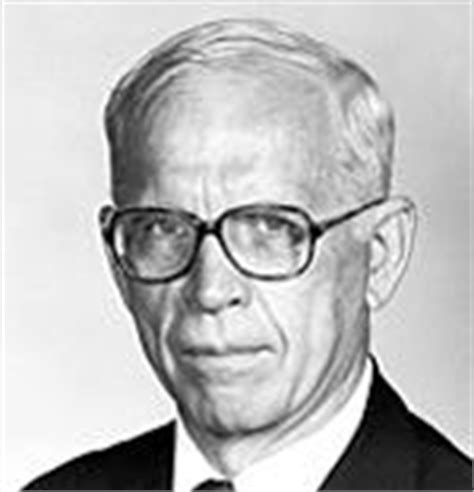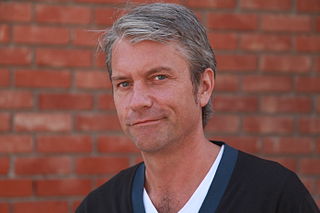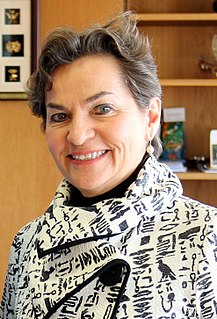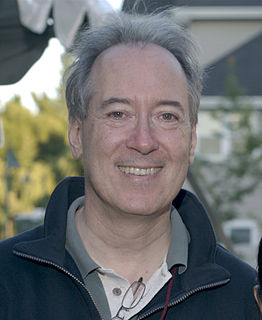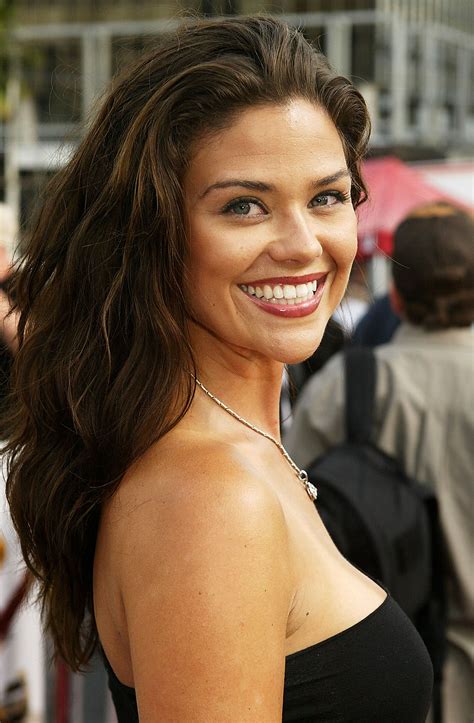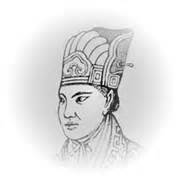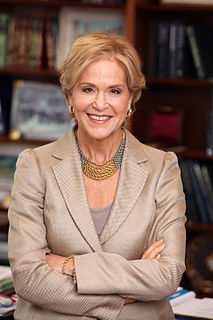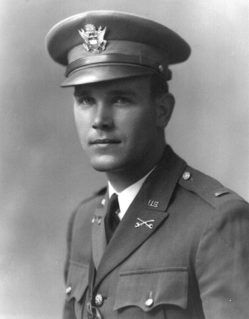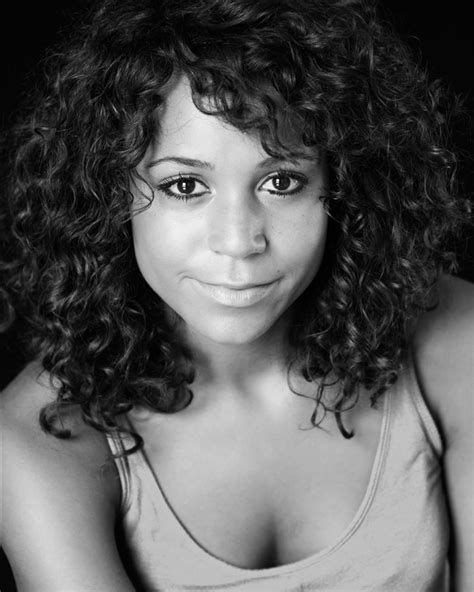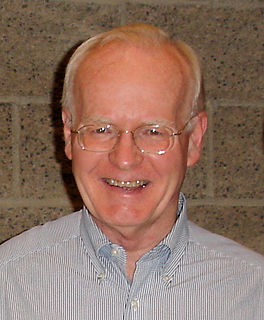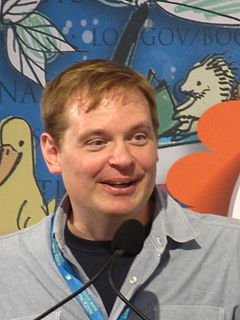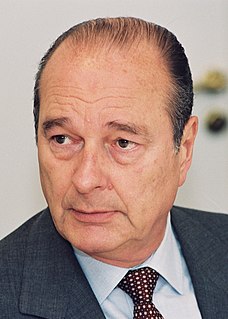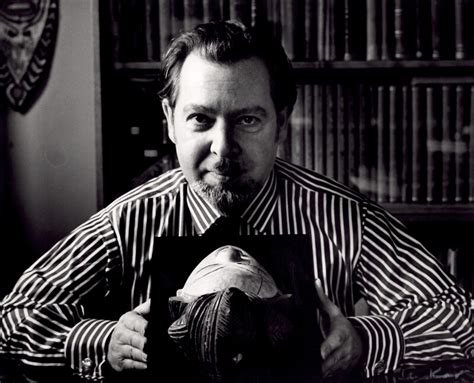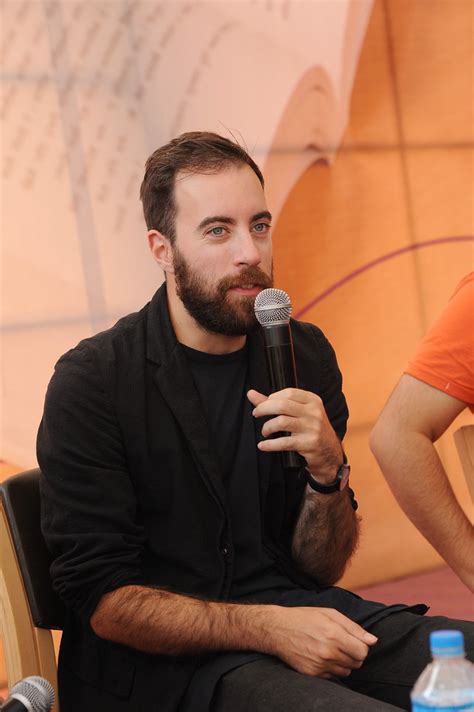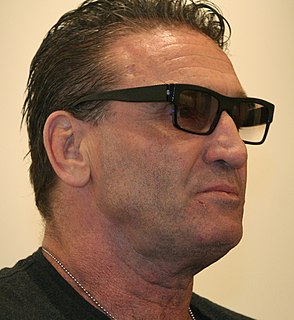Top 1200 World Events Quotes & Sayings - Page 9
Explore popular World Events quotes.
Last updated on December 20, 2024.
Historical chronology, human or geological, depends... upon comparable impersonal principles. If one scribes with a stylus on a plate of wet clay two marks, the second crossing the first, another person on examining these marks can tell unambiguously which was made first and which second, because the latter event irreversibly disturbs its predecessor. In virtue of the fact that most of the rocks of the earth contain imprints of a succession of such irreversible events, an unambiguous working out of the chronological sequence of these events becomes possible.
I've been searching for a genre that would be most adequate to my vision of the world to convey how my ear hears and my eyes see life. I tried this and that, and finally, I chose a genre where human voices speak for themselves. But I don't just record a dry history of events and facts; I'm writing a history of human feelings.
I would like the events never to be told directly by the author, but rather to be introduced (and several times, from various angles) by those among the characters on whom they will have had any effect. I would like those events, in the account they will make of them, to appear slightly distorted; a kind of interest stems, for the reader, from the simple fact that he should need to restore. The story requires his collaboration in order to properly take shape.
The modern American tourist now fills his experience with pseudo-events. He has come to expect both more strangeness and more familiarity than the world naturally offers. He has come to believe that he can have a lifetime of adventure in two weeks and all the thrills of risking his life without any real risk at all.
The second noble truth states that we must discover why we are suffering. We must cultivate the courage to look deeply, with clarity and courage, into our own suffering. We often hold the tacit assumption that all of our suffering stems from events in the past. But, whatever the initial seed of trauma, the deeper truth is that our suffering is more closely a result of how we deal with the effect these past events have on us in the present.
The Islamic world is not only suffering from the American occupation of Palestine and Iraq, it's also suffering from the unbelievable corruption in Afghanistan by Afghans themselves and also in Iraq - I'm just giving these 2 examples of countries which are under direct occupation; I do not mean at all to negate the terrible events that led to this or what's going on with the foreign occupation there.
Idealism sees the world in God. It beholds the whole circle of persons and things, of actions and events, of country and religion,not as painfully accumulated, atom after atom, act after act, in an aged creeping Past, but as one vast picture, which God paints on the instant eternity, for the contemplation of the soul.
In the end, the only events of my life worth telling are those when the imperishable world erupted into this transitory one All other memories of travels, people and my surroundings have paled beside these interior happenings But my encounters with the 'other' reality, my bouts with the unconscious, are indelibly engraved on my memory. In that realm there has always been wealth in abundance, and everything else has lost importance by comparison.
Money values do not simply mirror the state of affairs in the real world; valuation is a positive act that makes an impact on the course of events. Monetary and real phenomena are connected in a reflexive fashion; that is, they influence each other mutually. The reflexive relationship manifests itself most clearly in the use and abuse of credit.
We can read the paper or current magazines and learn about national and world events, think about controversial subjects, learn how to disagree respectfully, and how, finally, to act on our convictions. We can read for pure delight, and if we do this as a family or classroom or other group we can build wonderful memories.
Let the children learn to see in nature an expression of the love and the wisdom of God; let the thought of Him be linked with bird and flower and tree; let all things seen become to them the interpreters of the unseen, and all the events of life be a means of divine teaching. As they learn thus to study the lessons in all created things and in all life's experiences, show that the same laws which govern the things of nature and the events of life are to control us, that they are given for our good, and that only in obedience to them can we find true happiness and success.
The appeal of the spectrally macabre is generally narrow because it demands from the reader a certain degree of imagination and a capacity for detachment from every-day life. Relatively few are free enough from the spell of the daily routine to respond to rappings from outside, and tales of ordinary feelings and events, or of common sentimental distortions of such feelings and events, will always take first place in the taste of the majority; rightly, perhaps, since of course these ordinary matters make up the greater part of human experience.
Users socialize to figure out what they're going to do on the weekend. They use MySpace to discover new music and post events. Musicians upload their music. People use it for entertainment purposes or to sell goods in the classified area. MySpace makes what they do in the offline world a) more efficient or b) more interesting.
The record-breaking extreme weather events causing chaos across the globe should be a wake-up call. The transition to a low-carbon economy will be much more painful if we wait until there is a climate crisis before recognising that more than half of the world's fossil fuel reserves will have to remain in the ground.
Always tell us where we are. And don't just tell us where something is, make it pay off. Use description of landscape to help you establish the emotional tone of the scene. Keep notes of how other authors establish mood and foreshadow events by describing the world around the character. Look at the openings of Fitzgerald stories, and Graham Greene, they're great at this.
I think of some of my friends who have passed to the spirit world but are who here with me when I go to events and when I walk in my own community. My sisters, Ingred, my sister Marsha, and my sister Nielock. All cofounders of the Indigenous Women's Network with me. All long time women activists in the native community.
Just as the telescope and microscope show us that there is order and design in all the works of God's hand, from the greatest planet down to the least insect, so does the Bible teach us that there is wisdom, order, and design in all the events of our daily life. There is no such thing as 'chance', 'luck', or 'accident' in the Christian journey through this world.
"Little Brother" sounds an optimistic warning. It extrapolates from current events to remind us of the ever-growing threats to liberty. But it also notes that liberty ultimately resides in our individual attitudes and
actions. In our increasingly authoritarian world, I especially hope that teenagers and young adults will read it - and then persuade their peers, parents and teachers to follow suit.
What do you think an artist is? An imbecile who has only his eyes if he's a painter, or ears if he's a musician, or a lyre at every level of his heart if he's a poet, or even, if he's a boxer, just his muscles? On the contrary, he's at the same time a political being, constantly alive to heart-rending, burning, or happy events in the world.
To be alive means to live in a world that proceeded one’s own arrival and will survive one’s own departure. On this level of sheer being alive, appearance and disappearance, as they follow upon each other, are the primordial events, which as such mark out time, the time span between birth and death.
ll industries have been disrupted and disruption tends to generate gatherings for people to share information. I don't think media are unusual here. Add to that the discovery, or perhaps expansion of the awareness, that events can generate revenue. So now we have companies whose business model is heavily based on events, whether it is Re/code or South by Southwest or many others. Those kinds of gatherings were once more institutionally oriented inside trade associations. Now they have been expanded out.
We are very excited with the roster of skaters that are coming. It's the first time New Jersey has been awarded an event of this caliber in the skating world. It's definitely important to the area because we hear all the time that there are not enough major sporting events in South Jersey. It's a great opportunity to have such an event.
I'm much more conscious of historical events since the '60s. In the '60s, I was insulated by my own addictions, my own lifestyle, from what was going on in the world. After I recovered I was amazed at certain people who had died. I hadn't noticed that they had gone. Not friends ... I'm talking about public figures who had passed away.
The gravest events dawn with no more noise than the morning star makes in rising. All great developments complete themselves in the world and modestly wait in silence, praising themselves never, and announcing themselves not at all. We must be sensitive, and sensible, if we would see the beginnings and endings of great things. That is our part.
Do not despair! Work steadily. Sincerity and love will conquer hate. How many seemingly impossible events are coming to pass in these days! Set your faces steadily towards the Light of the World. Show love to all... Take courage! God never forsakes His children who strive and work and pray! Let your hearts be filled with the strenuous desire that tranquillity and harmony may encircle all this warring world. So will success crown your efforts, and with the universal brotherhood will come the Kingdom of God in peace and goodwill.
Acquire and store a reserve of food and supplies that will sustain life. ... As long as I can remember, we have been taught to prepare for the future and to obtain a years supply of necessities. I would guess that the years of plenty have almost universally caused us to set aside this counsel. I believe the time to disregard this counsel is over. With events in the world today, it must be considered with all seriousness.
But the monotonous life led by invalids often makes them like children, inasmuch as thy have neither of them any sense of proportion in events, and seem each to believe that the walls and curtains which shut in their world, and shut out everything else, must of necessity be larger than anything hidden beyond.
There are more ideas on earth than intellectuals imagine. And these ideas are more active, stronger, more resistant, more passionate than "politicians" think. We have to be there at the birth of ideas, the bursting outward of their force: not in books expressing them, but in events manifesting this force, in struggles carried on around ideas, for or against them. Ideas do not rule the world. But it is because the world has ideas (and because it constantly produces them) that it is not passively ruled by those who are its leaders or those who would like to teach it, once and for all, what it must think.
Genius and science have burst the limits of space, and few observations, explained by just reasoning, have unveiled the mechanism of the universe. Would it not also be glorious for man to burst the limits of time, and, by a few observations, to ascertain the history of this world, and the series of events which preceded the birth of the human race?
Close observation of children at play suggests that they find out about the world in the same way as scientists find out about new phenonoma and test new ideas...during this exploration, all the senses are used to observe and draw conclusions about objects and events through simple, if crude, scientific investigations.
I consider morals and aesthetics one and the same, for they cover only one impulse, one drive inherent in our consciousness - to bring our life and all our actions into a satisfactory relationship with the events of the world as our consciousness wants it to be, in harmony with our life and according to the laws of consciousness itself.
Coincidence was a concept he did not entirely trust. As someone who had spent his life exploring the hidden interconnectivity of disparate emblems and ideologies, Langdon viewed the world as a web of profoundly intertwined histories and events. The connections may be invisible, he often preached to his symbology classes at Harvard, but they are always there, buried just beneath the surface.
History reminds us that revolutions are not events, so much that they’re processes – that for tens of thousands of years, people have been making decisions that irrevocably shaped the world that we live in today; just as today, we are making subtle, irrevocable decisions that people of the future will remember as revolutions.
Have you not budged an inch, then? Such is the daily news. Its facts appear to float in the atmosphere.... We should wash ourselves clean of such news. Of what consequence, though our planet explode, if there is no character involved in the explosion? In health we have not the least curiosity about such events. We do not live for idle amusement. I would not run round a corner to see the world blow up.
Inspiration is really all around us. I pay attention to a lot of different fields. I stay up on current events. I go to community meetings to see what concerns the people in my neighborhood. Paying attention to social interactions offline really inform interactions online. The real world is a bottomless source of inspiration for what you can build.
The Kennedy assassination has demonstrated that most of the major events of world significance are masterfully planned and orchestrated by an elite coterie of enormously powerful people who are not of one nation, one ethnic grouping, or one over-ridingly important business group. They are a power unto themselves for whom those others work. Neither is this power elite of recent origin. Its roots go deep into the past.
There's nothing tiny or insignificant. Everything is significant. And everything flows on the same basis of Laws. Whether you are looking at world events or something that's happening in your kitchen drawer, broad and important, or narrow and seemingly insignificant, there's potential for connection or disconnection in either case. And it is only the connection or the disconnection that is of really any importance.
Directing plays lacked the immediacy and connection to real world events that journalism offered; journalism lacked the drama, theatricality and subjective storytelling of theater. It wasn't until I had the idea of making a documentary film about the 1992 presidential campaign that these two passions came together in 'The War Room.'
Memory is slippery. It bends to our understanding of the world, twists to accommodate our prejudices. It is unreliable. Witnesses seldom remember the same things. They identify the wrong people. They give us the details of events that never happened. Memory is slippery, but my memories suddenly feel slipperier.
I'm fascinated by the First World War because it was supposed to be the war to end all wars, and it was the biggest conflagration that this particular planet had seen. There was a lot of talk about utopia and how it was possible, and then, because of these events that for one reason or another couldn't be stopped, the idea of utopia went out the window.
Seldom can two such epoch-making events have occurred in successive years as happened then. In 1453 the Turks stormed Constantinople and finally destroyed the Greek Empire, driving out Greek scholars, who carried the knowledge of Greek language and literature to the western world; and in 1454 the first document known to us appeared from the printing press at Mainz.
I don't even know in American educational history classes how much of D-Day, World War II, all of that is taught versus how much of it is just ignored or looked back on with mockery or insincerity or what have you. But it was one of the most crucially important events in all of human history in terms of the preservation of freedom and liberty and the notion of democracy and things associated with it.
Every place is given its character by certain patterns of events that keep on happening there. These patterns of events are locked in with certain geometric patterns in the space. Indeed, each building and each town is ultimately made out of these patterns in the space, and out of nothing else; they are the atoms and molecules from which a building or a town is made.
I think subconsciously you wanted to "fit in" to the TV and film world and unfortunately that meant being petite and skinny. The camera does add 10 pounds. It does affect your idea of normal. Essentially, though, my body-image issues weren't down to the industry alone. These were ideas I had from little events along the way of life.
Twentieth-century developments in science support a new animism. Developments in physics have led to a world of energetic events which seem to be self-moving and to behave in unpredictable ways. And recent studies in biology seem to demonstrate that bacteria and macromolecules have elemental forms of perception, memory, choice, and self-motion.
Maybe if people can't have an end to their suffering, the next thing they seek for is to know why they suffer. Suffering is a part of life in this world, part of a cycle....Stories give you a way to see things. A way to understand the events of your life. Even if you don't realize it while you're hearing the tale.
Under the benignant providence of Almighty God the representatives of the States and of the people are again brought together to deliberate for the public good. The gratitude of the nation to the sovereign arbiter of all human events should be commensurate with the boundless blessings which we enjoy. Peace, plenty, and contentment reign throughout our borders, and our beloved country presents a sublime moral spectacle to the world.
Helping to build a better-organized, fair and harmonious world: that idea lies at the heart of my conception of our country's role. Down through the centuries, France has provided answers to the great questions facing mankind. In continuing to do so, France is responding to a genuine demand, displaying leadership and influencing the course of events.
Photography is the only “language” understood in all parts of the world, and bridging all nations and cultures, it links the family of man. Independent of political influence - where people are free - it reflects truthfully life and events, allows us to share in the hopes and despair of others, and illuminates political and social conditions. We become the eye-witnesses of the humanity and inhumanity of mankind . . .
Ever since the dawn of civilization, people have not been content to see events as unconnected and inexplicable. They have craved an understanding of the underlying order in the world. Today we still yearn to know why we are here and where we came from. Humanity's deepest desire for knowledge is justification enough for our continuing quest. And our goal is nothing less than a complete description of the universe we live in.
Most romances aren't swept aside by big historical events. Most romances in the history of the world fall apart because of other, smaller happenings. History can sometimes be in the background, the thing which instead of rupturing your life merely irritates you by pressing itself now and then into the foreground.
There's no question in my mind that the times I was in my prime, I was the most well-rounded fighter out there - or in the world. I was the one who knew how to kickbox. I did kickbox and muay thai, I competed in events in Japan, and I was a submission specialist. Going into the UFC for the first time, I was the most well-rounded fighter there.




